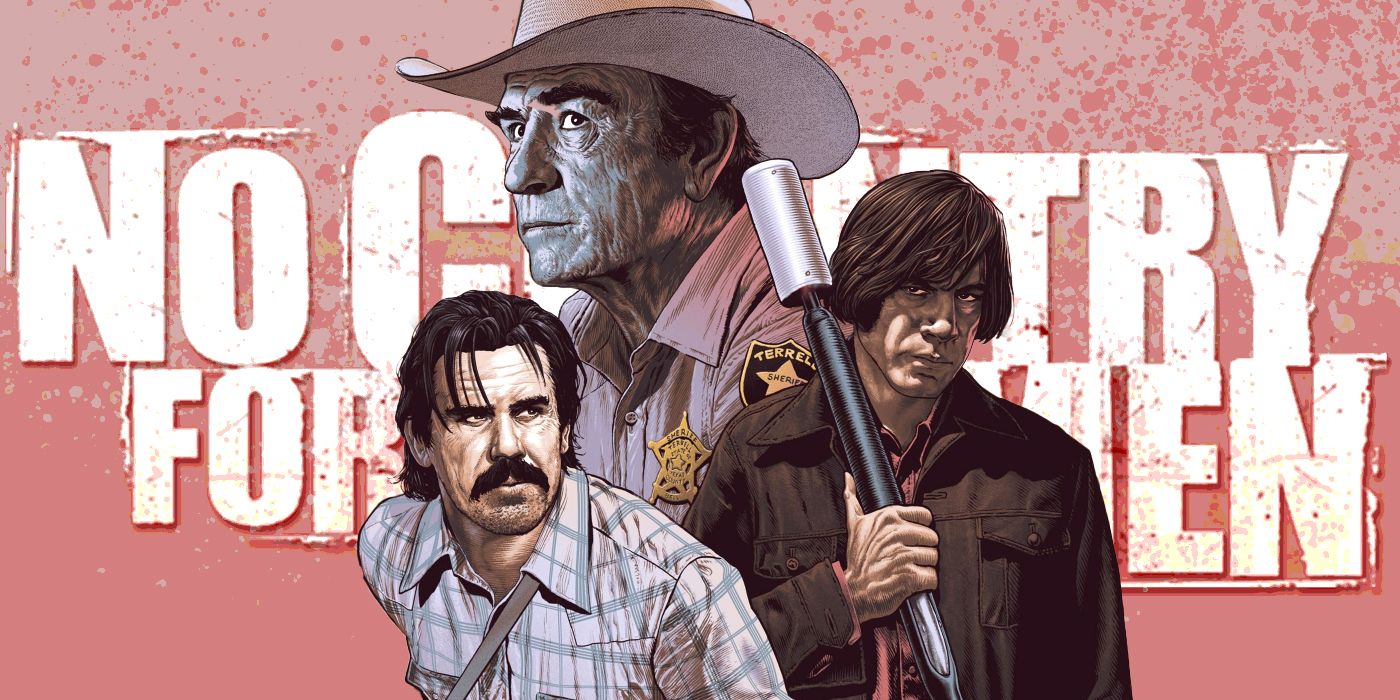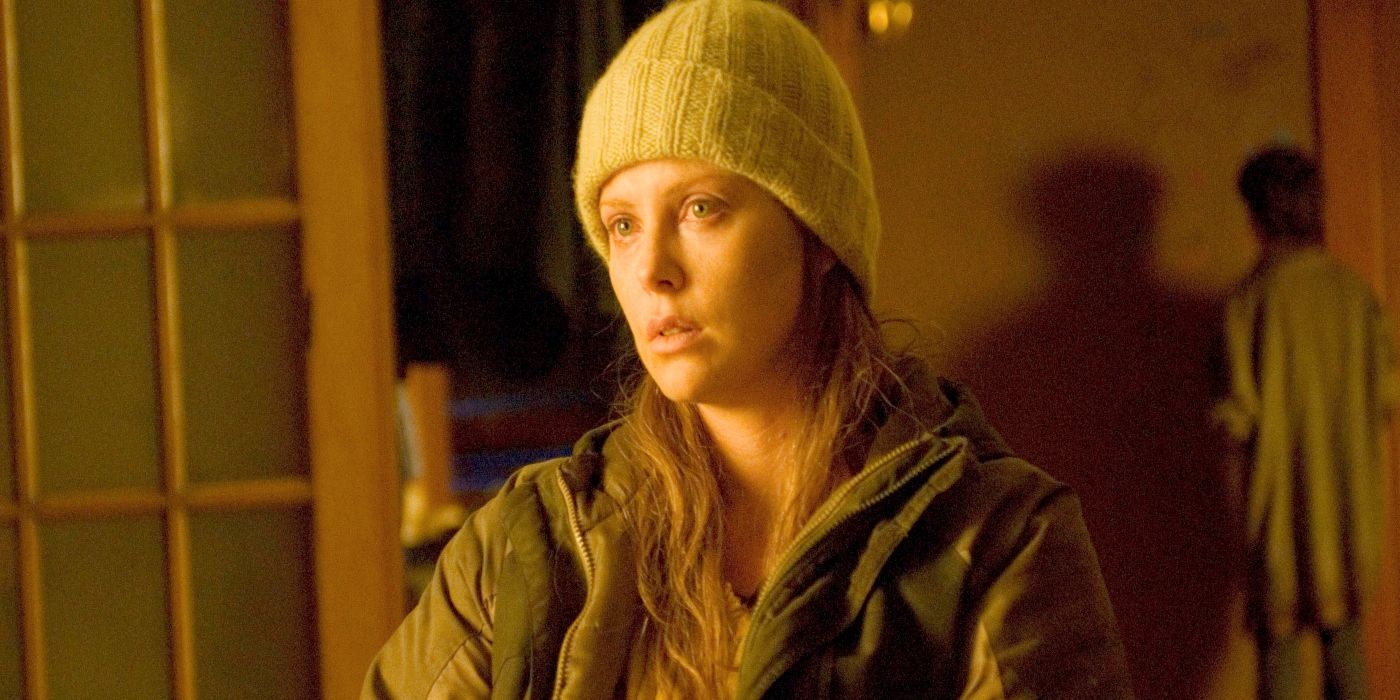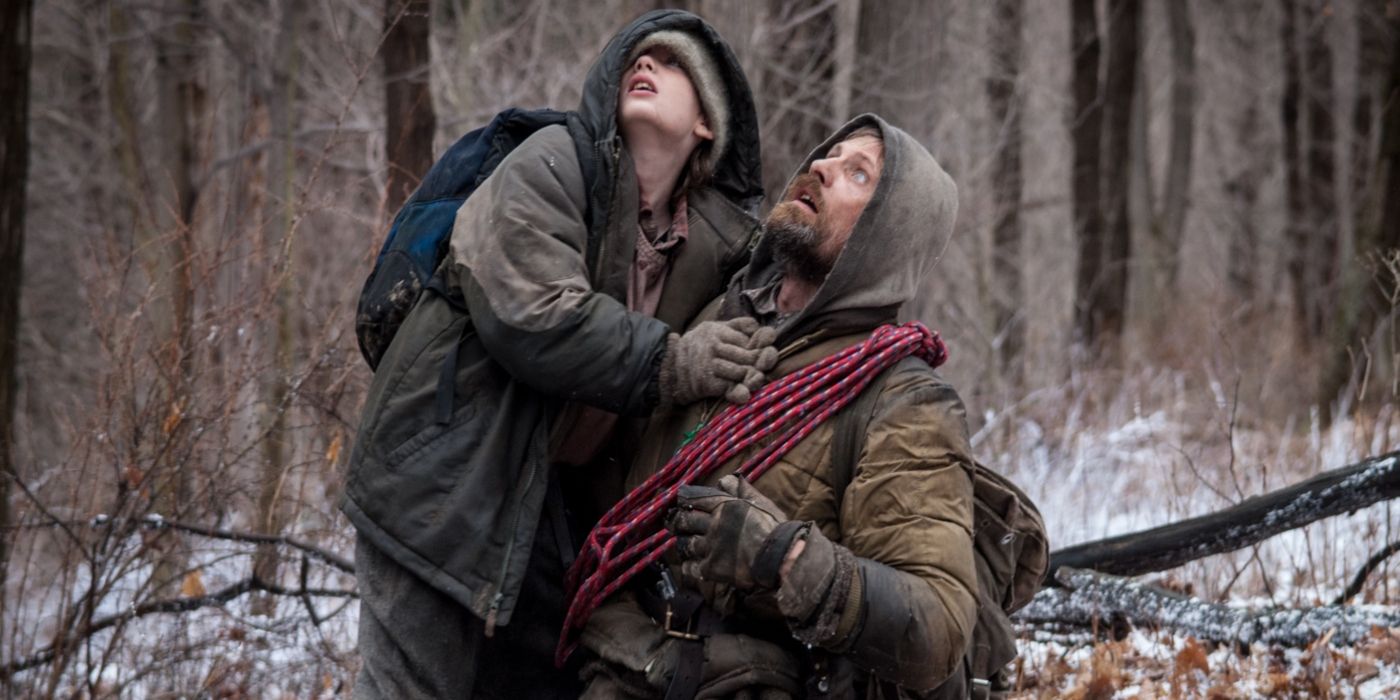The Big Picture
-
The Road
film omits graphic scenes of horror found in Cormac McCarthy’s novel. - Charlize Theron’s expanded role as Woman adds depth and alters the emotional impact of the movie adaptation.
- The film offers a more optimistic conclusion than McCarthy’s book, providing closure and a sense of safety for the boy’s future.
Known as one of the bleakest post-apocalyptic stories out there, The Road is also one of Cormac McCarthy‘s finest works. Released in 2006, the novel received a coveted Pulitzer Prize for Fiction the following year, and it wasn’t long before Hollywood swept the tale up for itself. In 2009, a film adaptation by director John Hillcoat, from an adapted screenplay by Joe Penhall, brought the harrowing tragedy to life. Viggo Mortensen stars in his best post-Lord of the Rings role as Man opposite Kodi Smit-McPhee‘s Boy. Charlize Theron is featured as Woman, with Robert Duvall and Guy Pearce in supporting roles as Old Man and Veteran, respectively. There’s nothing quite like this survival adventure, which threatens to take you into its dark abyss, but it makes for a thoughtful fable about the tenacity of the human spirit. Still, The Road film makes a few notable changes from the book, taking McCarthy’s original material in a distinctly different, though similar, direction.
The Road
- Release Date
- November 30, 2011
- Cast
- Carmina Villaroel , Rhian Ramos , TJ Trinidad , Barbie Forteza , Lexi Fernandez , Derick Monasterio
- Runtime
- 110
- Writers
- Aloy Adlawan , Yam Laranas
‘The Road’ Movie’ Cuts Out Graphic and Horrifying Details From the Book
It’s hard to think of The Road as being anything but intense. This survival story puts the man and the boy in the most perilous of situations, where they encounter bands of cannibals and plenty of violent offenders. The grey coloring of the film adds to the hopelessness riddled throughout, which constantly threatens to overtake our heroes. But even in the pulse-pounding intensity of the live-action adaptation, it fails to fully capture the same horrors that Cormac McCarthy pens in his novel. While cannibals still run free in this post-extinction world, we see less of what they and others are capable of than we read about in the book. Though, maybe that’s a good thing.
For instance, in the novel, McCarthy chronicles a moment when the man and boy hear a woman giving birth in the middle of the night, but the initial hope of new life is quickly extinguished. The very next morning, the pair come across the newborn infant lying dead on the ground, having been roasted and eaten alive. It’s a horrific, chilling moment that wasn’t included in the film. It’s too much in the book, and it would be far too much if we had to see it also. Likewise, there’s a point in the original story where the man and the boy watch some marauders from afar as they drag some young boys along beside them that they keep for sexual intent or practices. Given the already hard and disturbing nature of cannibalism as seen in the production, The Road film was wise in omitting these particular details from the adaptation. Though, we’re still curious as to why they cut the boat scene…
Because of these (and other) changes, some have noted that the general atmosphere of McCarthy’s prose crackles differently on the page than it does on screen. While the filmmakers certainly did their due diligence in bringing the author’s words to life, renowned film critic Roger Ebertwas right in pointing out that the film “lacks the same core of emotional feeling.” He continued to describe how McCarthy’s work, due to his unique, unfiltered prose, may be “unfilmable,” though director John Hillcoat does his absolute best. It’s true that the novel better weaves together the contrasting themes of hope and hopelessness as well as survival and death, together in a marriage of carefully chosen words. The result is that the book feels more intimate and tense than the feature film adaptation, even though the movie tries to get us there. If you haven’t read the book before, here’s your cue to dive in.
Charlize Theron’s Woman Has a Bigger Role in ‘The Road’ Movie
A major change made in translating the original novel to the screen is that the woman, played here by Charlize Theron, is given a more significant role. In the book, all we know about her comes from a series of dreams the man has where he recalls the moments before her death. She supposedly died by suicide to prevent cannibals or rapists from getting a hold of her, and as a result, the man plays with his wedding ring in the aftermath. The woman even states that, if it wouldn’t have wrecked the man, she would have taken the boy with him into death’s embrace. In the film, however, we see a lot more of the woman than we did before, with the man having dreams of their happy life together from before the apocalypse. It actually makes the whole thing more heartbreaking.
The movie itself opens with the man and the woman (while she’s still pregnant) at the beginning of the apocalypse. We see the man begin to fill the bathtub with water as they both recognize the end is upon them. Throughout the first act, we’re privy to more flashbacks that elaborate on the declining nature of their relationship as the woman argues with her husband over her desire to die by suicide. Just as in the novel, she’s distraught and overcome with despair over the thought of living any longer in the world. Unlike in the novel, which only sparingly reveals information about her, the film helps us better understand the woman’s thought process in doing so, as well as her slow decline toward hopelessness. Of course, the man continues to hope for a better life, and is left with the boy to pursue as such.
Viggo Mortensen’s Movie Ends More Optimistically Than Cormac McCarthy’s Book
There are other differences between the original material and the theatrical adaptation, of course. The man’s ultimate resting place in the book is at their campsite in the woods, as opposed to his final moments on the beach in the film. But in both cases, his last back-and-forth with his son is heartbreaking, and it leaves the viewer and/or the reader in an absolute mess. Afterward, the boy stays with his father’s body for three days before moving on, realizing that he’s now all alone in the world. But this is only the preamble to the story’s actual end. McCarthy’s novel concludes with the boy being convinced by a man that he and his family are the “good guys” and can take care of him. While that sounds hopeful at first, within the context of the book it feels more suspicious than anything else, with the author ultimately leaving the boy’s fate up to interpretation.
For the film, director John Hillcoat takes a different approach. While this same veteran (played here by Guy Pearce) makes the same offer to the boy, the film reveals that the man and the boy had been followed by the veteran and his family for several days. While the veteran himself is still a little skittish, The Road implies that after introducing the man’s family (which includes his wife (Molly Parker), son, daughter, and their dog), the boy is going to be okay after all. In conveying a more Hollywood-ish, finite ending, The Road doesn’t leave the viewer wandering in search of what happens next. Though we don’t know what’s in store for the boy with his new family, we know that he will be safe from those who would seek him harm. The book gives us no such closure, and instead leaves us with the burning question, “Are they indeed carrying the fire?”
But this change in the ending works for the film in the same way that Frank Darabont‘s bleak adaptation of Stephen King‘s The Mist works for that one. It honors the ideas explored throughout and calls back to the boy’s prior discovery of another young boy as well as the dog they heard from the bunker midway through the picture. In hindsight, this overtly hopeful finale almost turns The Road into a different movie. It makes the man come across as more paranoid or needlessly worrisome about the world around him than before. Perhaps it even downplays the constant life-and-death struggle they face earlier in the film. Perhaps not. It’s worth noting that the people they meet in the first half are generally violent and dangerous, while those they meet in the second (save for the archer) generally aren’t. The film itself tends to shift from hopeless to hopeful the longer it carries on, and maybe that’s for the best.
‘The Road’ Is an Honorable Adaptation of Cormac McCarthy’s Novel
Though No Country for Old Men is by far the best Cormac McCarthy adaptation out there, The Road comes in at a close second. Sure, the ending is a bit more optimistic than McCarthy would’ve likely penned it, but that, too, is a read one could have on the original novel. The casting of Viggo Mortensen as the man is perfect, and he encapsulates the role of the weary and protective father better than most. His chemistry with a young Kodi Smit-McPhee, who is as good here as ever, is exactly what one could ask for after reading the novel. It never feels unrealistic or too over the top (despite some criticisms to the contrary), and the pair expertly rip The Road right out of the page. Nick Cave and Warren Ellis make the whole thing even more eerie with their understated score, which evokes emotions from straight dread to near hope.

Related
The Real Danger in ‘No Country for Old Men’ Isn’t What You Think
Anton Chigurh is scary, but this is scarier.
There are other things that make The Road stand out as a particularly compelling adaptation. The way it honors McCarthy’s description of the ashen world filled with crisped trees, layers of soot, and a forever sun-less sky feels like we’ve walked right into this post-apocalyptic waste. The cinematography, which was nominated for a BAFTA award, is haunting, and cleverly matches the look and feel of the words the author first penned on the page. There’s no such thing as a perfect adaptation, of course. There’s always something left out, something rewritten, or something re-imagined from the original. Good or bad, The Road has its clear differences from the 2006 novel, yet it still sticks the landing. Cormac McCarthy himself once called the picture “very powerful” and “a film like no other film [he’s] seen.” With that kind of praise, The Road should be considered one of the better book-to-screen adaptations out there.
The Road is available to rent on Prime Video in the U.S.
Rent on Prime Video






